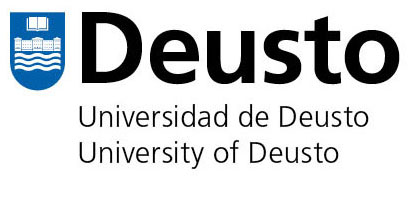About
SoundScapes is a groundbreaking student and STEAM centered approach with a focus on the arts, empowering students to design their own sonification systems for project-based learning of school curricula. This innovative method aims to enhance student engagement and motivation while promoting inclusion, diversity and competence development. Through exploration of the auditory sense, students will learn to communicate and connect using the universal language of music.
Sound conveys information that is readily accessible to you through mere observation of your body sensations. But did you know it is also possible to “hear the stars”, the brain waves of someone thinking , or even plants “talking to each other”? The process of translating data, like voltage fluctuations, colour brightness, light frequencies, or any kind of data, into sound is called sonification. Auditory representations of data offer intuitive understanding and can reveal patterns not easily discernible visually. But besides its aesthetic appeal to students in general, data sonification enhances accessibility for the visually impaired, fostering inclusion in the classroom.
Sonification example of astronomy data: Hubble’s telescope photograph of the Eagle nebula – The pillars of creation. Light information is mapped onto sound frequencies using Afterglow.
The project offers training opportunities and workshops for teachers and students to implement and support the design, building and application of sonification environments in school curricula. The goal is to increase their competence profile and digital readiness, developing skills as programming, electronics, sensors, microcontrolers, etc., and increasing their motivation and interest in school and in STEAM. This website is dedicated to support and foster the global maker and European Citizenship values, by promoting the sharing of projects, challenges and solutions between the transnational participating groups.

The Team
InovLabs is an educational start-up that provides STEAM activities to schools, based on electronics, programming, robotics and 3D modelling. The team provides curriculum classes and work directly with science and robotics clubs, nurturing an integrated STEM ecosystem. The team provides interdisciplinary STEM projects tailor-made for the current curricula, which can be directly deployed through their ready-to-go activities. Through these, students are engaged in experiential learning processes, develop their problem-solving and collaboration skills, through a creative process. Besides the core group of associated people, InovLabs counts with 8 trainers dedicated to specific schools. Since 2019, InovLabs is working directly and indirectly with more than 2000 students.
NUCLIO is a non-profit organization and an NGO for development that brings together teachers and researchers from the fields of science, psychology of education and educational sciences. NUCLIO coordinates and participates as a partner in several national and international projects and initiatives that aim to promote innovation and development in education. NUCLIO coordinates the Galileo Teacher Training Program (GTTP), one of the largest teacher training efforts in the world involving over 100 countries. Since its establishment, NUCLIO has reached over 70 000 teachers at a global level. NUCLIO also promotes scientific outreach actions, such as night sky observations and talks with scientists in different scientific fields.
With a long and well established tradition, founded in 1886 as a higher education institution, the University of Deusto has a mission and educational goal firmly grounded in academic excellence and social responsibility, aiming at generating economic sustainable growth and making positive contributions towards the construction of fairer and more inclusive and humane societies. Academic excellence for the University of Deusto is reflected in its commitment to innovative methods of learning.
Ellinogermaniki Agogi (EA) is an educational organization of private law, officially recognized by the state. Established in 1995, the Research and Development Department of EA provides the test bed for research applications for the design, development and implementation of the research activities in education. The R&D Department, currently employs 15 full time researchers (7 PhD level, 8 MSc) and acts as an interface between the pedagogical research, the technological innovation and the school community. It focuses on the design, implementation and support of pedagogical and technological innovation in educational practice, both through internal research as well as through collaborations with numerous educational, research and commercial institutions in Europe and the world.




